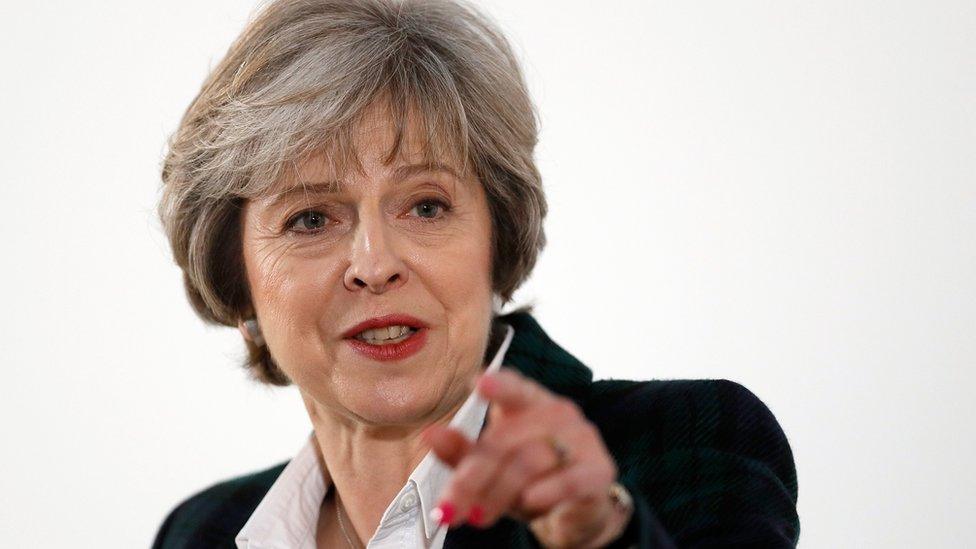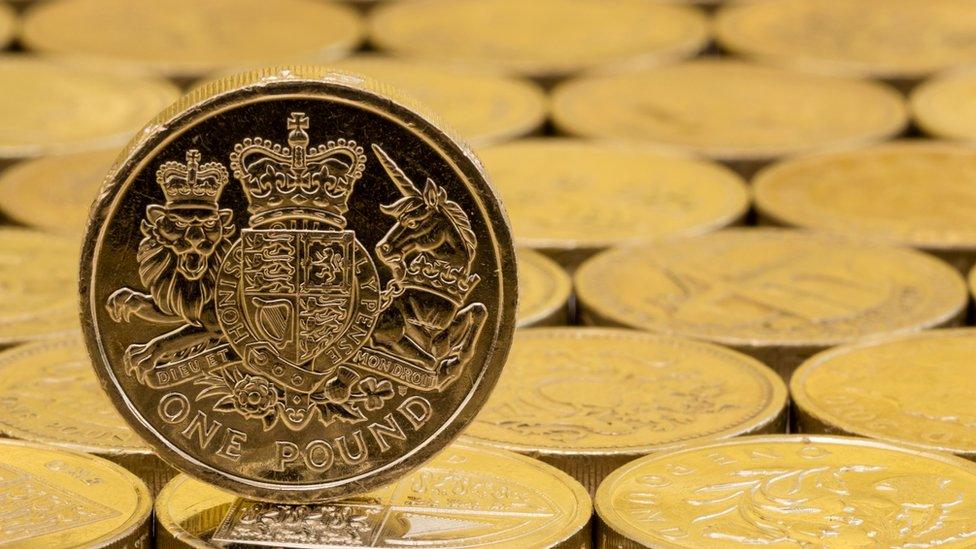Brexit: Speech is 'clearest idea' of deal PM wants
- Published

It cannot be said Britain will begin its exit from the EU with no destination in mind.
After today we have the clearest idea of the deal Theresa May wants: UK access to the European Single Market but no membership of it; a tariff-free customs union with the EU but freedom to sign trade deal with other countries; some sort of bridging arrangement between membership of the EU and life outside it to avoid "a disruptive cliff edge", to use Theresa May's phrase; a close security relationship with the EU.
Most strikingly, while the Prime Minister's speech tried to soothe friction between the UK and the EU by stressing the need for friendly mutual co-operation she had a blunt warning for the EU too. Britain will not sign a deal at any price.
"A punitive deal would be a calamitous act of self-harm", she told the audience of EU ambassadors gathered in the splendour of Lancaster House. But it is for the decision to take Britain out of the single market that historians will remember this speech.
The clues had been there for months. While claiming not to want a running commentary Theresa May has said many times Britain's break from the EU must result in control over EU migration and freedom from the jurisdiction of EU law. It was there in her speech to the Conservative Party conference in October.
Those political choices could only mean one outcome: Leaving the European Single Market. It is the most important economic decision Britain has taken for years.
It was at the same venue 28 years ago that Margaret Thatcher made a speech praising the embryonic single market.
"A single market without barriers - visible or invisible - giving you direct and unhindered access to the purchasing power of over 300 million of the world's wealthiest and most prosperous people", the former prime minster said.
Thatcher pioneered its creation (though later criticised the social dimension of the internal market) and the main political parties have been committed to it ever since.
The 2015 Conservative manifesto contained the following: "We benefit from the Single Market.... We want to preserve the integrity of the Single Market....We want to expand the Single Market". Of course, it also contained the promise of an EU referendum. And the Brexit vote has trumped continued membership of the single market.
The government could have made a different choice. Norway is an example of a country outside the EU that is a member of the single market. However, it has to pay a contribution to the EU budget, accept the freedom of EU citizens to live and work in Norway, is subject to European Court of Justice oversight and has no formal say in EU decision making. For Number 10 that was a non-starter.
So what does Britain want instead?
For a start, this speech was not a full blueprint for Brexit for the obvious reason that Number 10 does not want to spell out its negotiation strategy before talks with the EU begin.
Crucially, the final shape of Britain's post-Brexit relationship with the EU can only be known after it has been agreed by the remaining 27 member states and European Parliament. They too will approach the talks with demands, red lines and guiding principles.
Today Chancellor Angela Merkel told German businesses that conditions for access to the single market could not be "loosened" otherwise every EU country would try and "cherry pick" a new deal. The big question is how flexible Theresa May's starting principles become when negotiations begin.
And huge unknowns remain. What budget payments will the EU demand for single market access? Will EU workers have some freedom to work in the UK? Will the EU allow partial membership of the customs union?
Today the Prime Minister painted a picture of an orderly Brexit conducted in the spirit of mutual self-interest.
But divorce is rarely so smooth.
- Published17 January 2017
- Published17 January 2017

- Published30 December 2020
